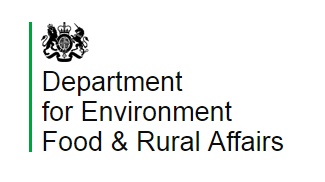The Department for Environment, Food and Rural Affairs (Defra) has opened consultation of a proposed enforcement regime for the EU Invasive Alien Species Regulation in England and Wales.

BPCA members are encouraged to make their views known by filling out the short online survey available on the Defra website.
Have your say
Fill out the survey now
Why are they consulting?
The consultation period closes 3 April 2018.
Defra has stated regarding the consultation:
“The EU Invasive Alien Species Regulation came into force in 2015.
“It currently applies restrictions on 49 invasive non-native species of most concern in Europe including a ban on keeping and sale.
“This consultation sets out proposals for enforcing those restrictions through the use of civil and criminal penalties.
“It will be of relevance for businesses that import or trade in non-native species and individuals that keep them, as well as those working in zoos and aquaria and NGOs with an interest in protecting the environment from these species.”
BPCA Technical Manager, Dee Ward-Thompson, said:
“We welcome the idea of civil and criminal penalties for anyone that hinders the protection of public health through the misuse of invasive species.
“Potentially, this could help spread the word about the dangers of invasive pests and the vital role professional pest controllers have in the fight against them.”
What is the Invasive Alien Species Regulation?
The aim of the EU Invasive Alien Species Regulation ((EU) 1143/2014) is to prevent or manage the introduction, or spread, of invasive non-native species across the European Union.
It provides for a set of measures to be taken about invasive non-native species included on a list of species of Union concern.
The regulation focuses on:
- Prevention: robust measures aimed at preventing species of Union concern from entering the EU, either intentionally or unintentionally;
- Early detection and rapid eradication: Member States must put in place a surveillance system to detect the presence of species of Union concern as early as possible and take rapid eradication measures to prevent them from establishing;
- Management: some species of Union concern are already well-established in certain Member States and concerted management action is needed so that they do not spread any further and to minimise the harm they cause.
Find out more on the GB non-native species secretariat website

Source: Online